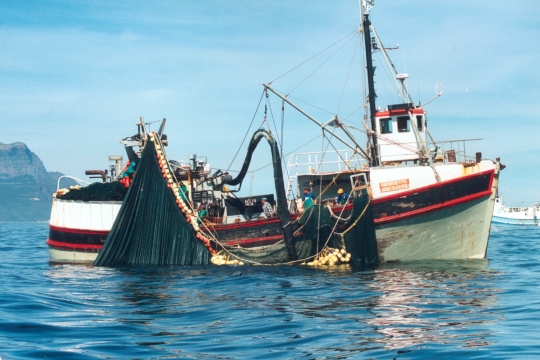The economic theory taught from textbooks in South African universities is 50 years out of date and needs an urgent revision, argues economist and fisheries expert Prof Tony Leiman.
‘International law of the sea, and domestic policy, use maximum sustainable yield as one of the models for gauging how to manage fisheries stocks,’ says Leiman, with the University of Cape Town-based Environmental Policy Research Unit (EPRU) with the School of Economics.
When maximum sustainable yield (MSY) is targeted, it can increase stocks’ vulnerability to natural ‘shocks’, such as year-on-year variations in sea temperature, or the strength of upwellings. Sustainable harvesting requires a conservative precautionary approach, to allow for negative shocks like this. But while scientists and local managers know this, the textbooks are thin on the subject, says Leiman.
Meanwhile the Schaefer model, on which most economic textbook approaches are based, treats individual species in silos, rather than looking at how they interact within an ecosystem.
‘This model looks at maximising rents for individual fisheries, rather than getting the best possible gains across the entire industry,’ he explains.
An ecosystems view should have been adopted long ago, says Leiman. This is the norm amongst South Africa’s biologists, but the old silo approach is the one still taken by economics departments at universities here.
At a recent EPRU research meeting, Leiman announced his plan to spend time in 2016 analysing the current fisheries management practises in South Africa, and comparing them with the theoretical framework informing them.
‘We also need to consider the special case of the sub-equatorial African coastlines and fisheries,’ he says.
Current fisheries models are based on the European coastline which is ‘indented’ and allows for a lot of small harbours from which smaller fishing operators can work. South Africa’s coastline is smooth and un-indented, which doesn’t give safe haven to small boats. It has an active surf zone and high energy seas. These conditions call for a different approach to fisheries management and allocation of rights, than that supported by models designed for European conditions.
Advancing technology has also changed fisheries management, something which isn’t reflected in these outdated models.
‘Monitoring landed catches is easy these days, because satellite technology means we can track ships at sea. There’s a conflict between what’s in the textbooks, and what’s happening out there in the environment. It’s these kinds of things that need to be built into textbook theory.’
Leiman intends publishing his analysis in the form of a monograph.
